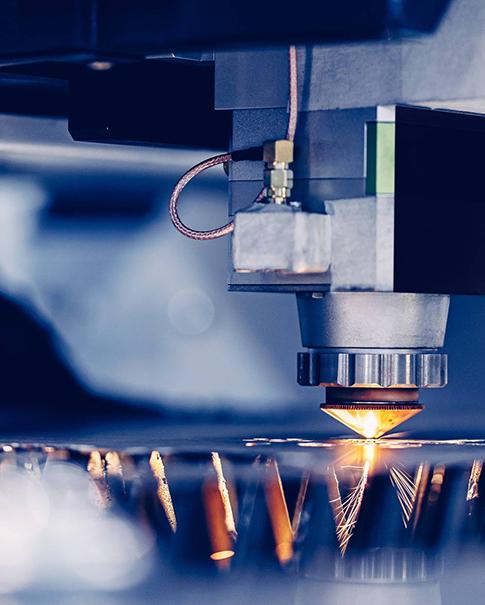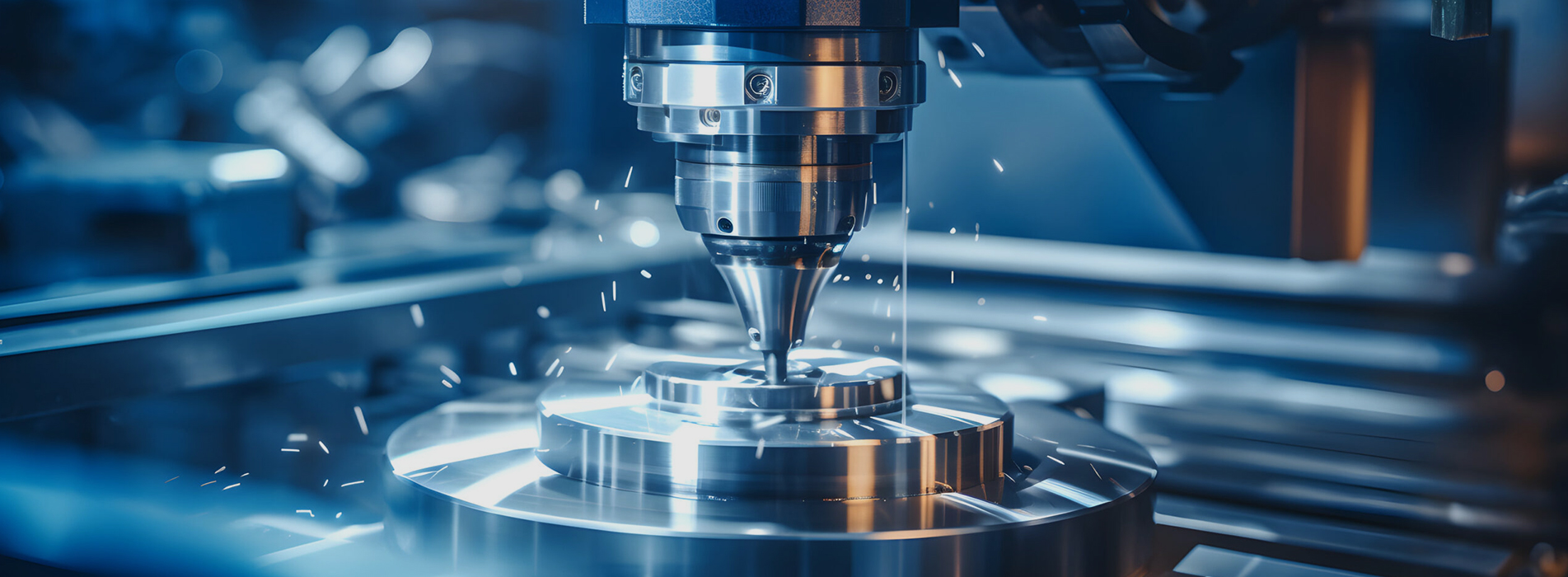Titel: Revolutionierende Fertigung: Die Kraft der CNC -Bearbeitung
Jan 13, 2025
Titel: Revolutionierende Fertigung: Die Kraft der CNC -Bearbeitung
Einführung:
In der Welt der modernen Fertigung sind Präzision und Effizienz Schlüsselfaktoren, die den Erfolg bestimmen. Unter den verschiedenen hochmodernen Technologien in dieser Branche, CNC (Computer Numerical Control) bearbeiten fällt auf einen revolutionären Prozess, der die Erzeugung von Teilen neu definiert hat. In diesem Blog werden wir uns mit den Feinheiten der CNC -Bearbeitung, ihren Anwendungen und der Rolle bei der Gestaltung der Zukunft der Fertigung befassen.
Verschlossenheit des Potenzials: Verständnis der CNC -Bearbeitung:
Die CNC-Bearbeitung verwendet computergesteuerte Maschinen, um Material aus einem Werkstück genau zu entfernen und komplexe und präzise Formen zu erzeugen, die einst als unerreichbar angesehen wurden. Im Gegensatz zu herkömmlichen Bearbeitungsmethoden, die sich stark auf manuelle Eingriffe stützten, bietet die CNC -Bearbeitung ein Maß an Automatisierung und Präzision bisher unvorstellbar. Der Prozess beinhaltet das Füttern eines Computerprogramms, typischerweise in Form von a CAD (computergestütztes Design) Datei zur CNC -Maschine, die dann die Anweisungen ausführt, um den Rohstoff in die gewünschte Form zu formen.
Vorteile der CNC -Bearbeitung:
1. Präzision und Genauigkeit: CNC -Maschinen können Aufgaben mit makelloser Genauigkeit wiederholen und konsistente Ergebnisse liefern. Diese Präzision stellt sicher, dass die fertigen Teile perfekt in größere Baugruppen passen, wodurch die Notwendigkeit von Nacharbeiten verringert und Fehler minimiert werden.
2. Flexibilität: Die CNC -Bearbeitung kann mit einer Vielzahl von Materialien umgehen, darunter Metalle, Kunststoffe und Verbundwerkstoffe. Diese Vielseitigkeit ermöglicht es den Herstellern, Teile für verschiedene Branchen wie Luft- und Raumfahrt-, Automobil-, Elektronik- und Medizinprodukte herzustellen.
3. Effizienz: Mit der Fähigkeit, Prozesse zu automatisieren, verringert die CNC -Bearbeitung die für die Produktion erforderliche Zeit erheblich. Dieser beschleunigte Herstellungsprozess verbessert die Gesamtproduktivität und hilft bei der Einhaltung der anspruchsvollen Termine und hält gleichzeitig qualitativ hochwertige Standards.
4. Komplexe Geometrien: Ob es sich um komplizierte Designs, enge Toleranzen oder komplexe Formen handelt, CNC -Bearbeitung zeichnet sich in der Herstellung von Teilen aus, die traditionelle Methoden herausfordernd sind. Es ermöglicht den Herstellern, Grenzen und Innovationen zu überschreiten, indem hochwertige und maßgeschneiderte Komponenten erstellt werden.
Anwendungen der CNC -Bearbeitung:
1. Luft- und Raumfahrtindustrie: Die CNC -Bearbeitung spielt eine entscheidende Rolle bei der Herstellung von Luft- und Raumfahrt und bildet Komponenten wie Turbinenblätter, Fahrwerksteile und Flugzeugstrukturen. Die genaue und zuverlässige Natur der CNC -Bearbeitung sorgt für die Integrität und Sicherheit dieser kritischen Teile.
2. Automobilindustrie: Von Motorkomponenten bis hin zu komplizierten Innenteilen ist die CNC -Bearbeitung ein wesentlicher Bestandteil des Automobilsektors. Es ermöglicht den Herstellern, leichte und langlebige Teile zu produzieren, die die Kraftstoffeffizienz, die Leistung und die allgemeine Fahrzeugsicherheit verbessern.
3. Elektronikindustrie: Die CNC -Bearbeitung wird bei der Herstellung von elektronischen Komponenten wie Leiterplatten, Anschlüssen und Gehäusen verwendet. Die Genauigkeit der CNC -Bearbeitung stellt sicher, dass die Komponenten nahtlos zusammenpassen und die Funktionalität und Zuverlässigkeit elektronischer Geräte verbessern.
4. Medizinische Industrie: Die CNC -Bearbeitung ist im medizinischen Bereich unverzichtbar, wo komplexe und maßgeschneiderte Teile unerlässlich sind. Es ermöglicht die Erzeugung chirurgischer Instrumente, Prothesen und Komponenten für medizinische Geräte, die präzise, zuverlässig und maßgeschneidert für individuelle Patientenanforderungen sind.
Umarmung der Zukunft mit CNC -Bearbeitung:
Während sich die Branchen weiterentwickeln, bleibt die CNC-Bearbeitung an der Spitze der modernen Herstellungstechnologie. Seine Fähigkeit, komplizierte, qualitativ hochwertige Teile mit Geschwindigkeit und Genauigkeit zu erzeugen, macht es zu einem unverzichtbaren Werkzeug in verschiedenen Sektoren. Mit Fortschritten in der Software, Automatisierung und Tooling wird die CNC -Bearbeitung in der Fertigung noch weiter revolutionieren und die Zukunft der Herstellung von Produkten prägen.
Abschluss:
Die CNC -Bearbeitung hat die revolutioniert Fertigungsindustrie, um die Schaffung komplexer, präziser und maßgeschneiderter Teile mit Effizienz und Genauigkeit zu ermöglichen. Die Anwendungen umfassen mehrere Sektoren, einschließlich Luft- und Raumfahrt-, Automobil-, Elektronik- und Medizinindustrie. Während wir die Zukunft nutzen, spielt die CNC -Bearbeitung weiterhin eine dominierende Rolle bei der Gestaltung der Welt der modernen Fertigung.















 ABONNIEREN SIE UNSEREN NEWSLETTER
ABONNIEREN SIE UNSEREN NEWSLETTER






